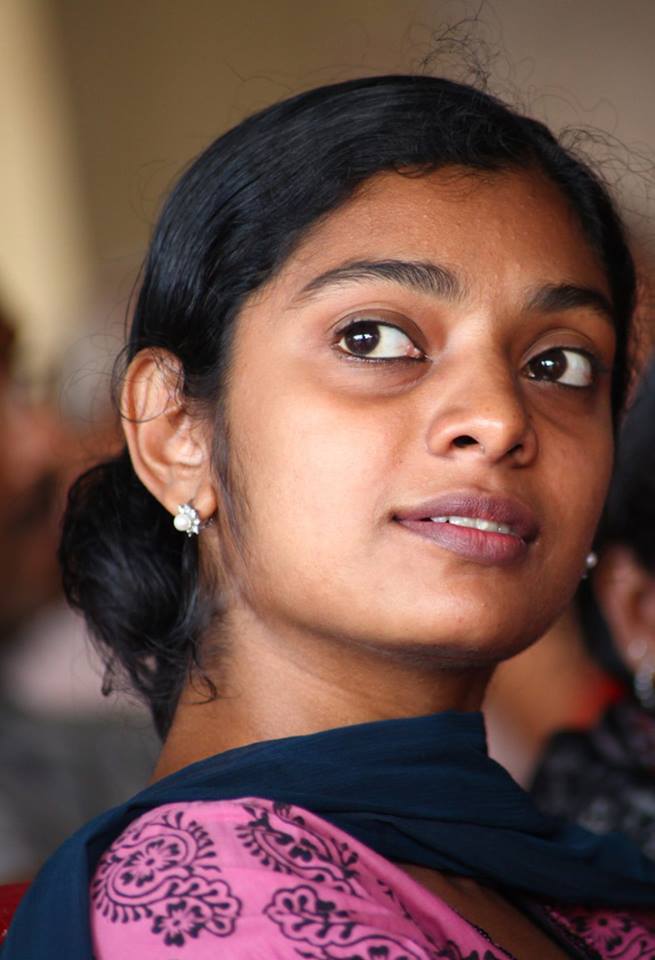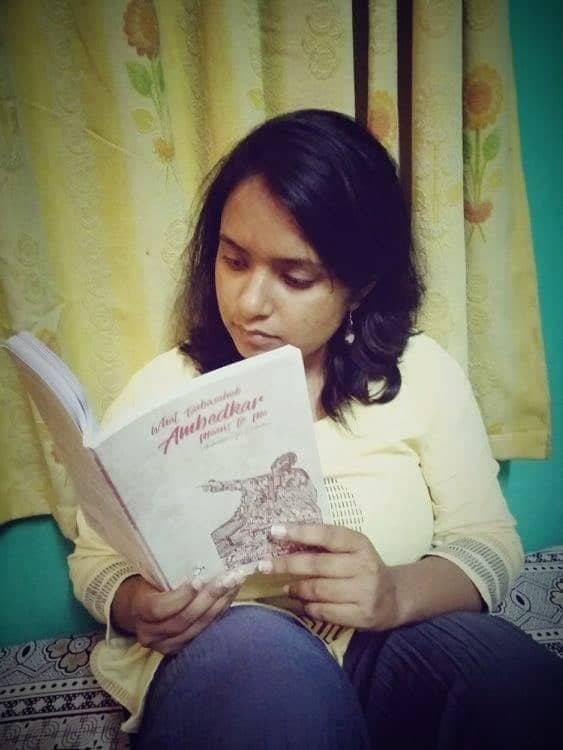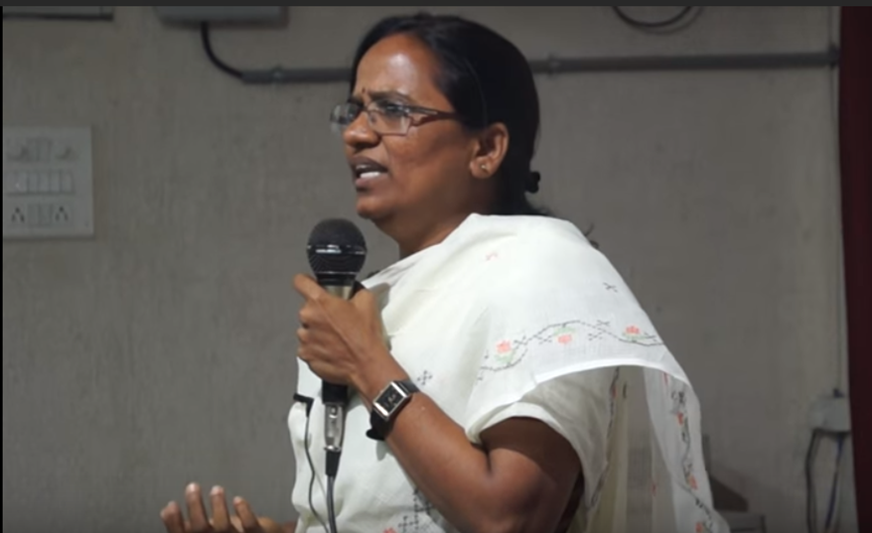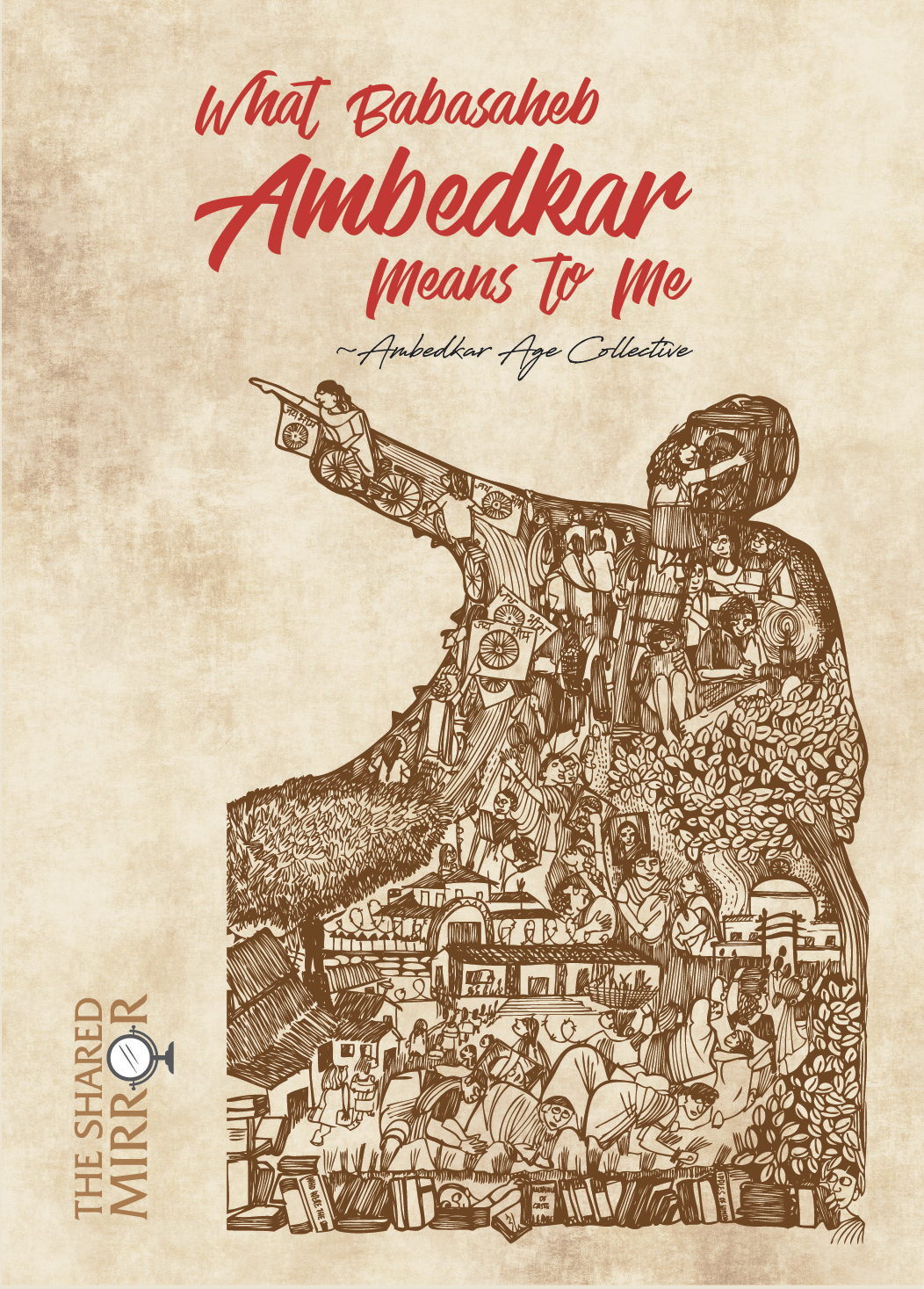SAVARI
 How do the Bahujan access the Ambedkarite consciousness when they are geographically and linguistically far apart from Maharastra where the collective memory thrives in the Marathi language? Young Bahujan from different parts of the country are also temporally apart from the generation that knew Babasaheb Ambedkar as a public figure in their lifetimes. The pedagogic erasure of Babasaheb Ambedkar is so complete that the majority of Bahujan come into this sphere based entirely on their curiosity, and dissatisfaction with what they have been taught and fed by the mainstream. This disconnect with the realities of the caste society, a denial of tools and skills to decode the injustices on the subcontinent and to their person propels them to find answers. Several essays in What Babasaheb Means To Me chart these empowering journies of the discovery of Babasaheb, sometimes done in complete isolation and on lonely paths. Sruthi Herbert, one of the editors and the main person behind the visualization of this book sketches her journey to the Ambedkarite consciousness.
How do the Bahujan access the Ambedkarite consciousness when they are geographically and linguistically far apart from Maharastra where the collective memory thrives in the Marathi language? Young Bahujan from different parts of the country are also temporally apart from the generation that knew Babasaheb Ambedkar as a public figure in their lifetimes. The pedagogic erasure of Babasaheb Ambedkar is so complete that the majority of Bahujan come into this sphere based entirely on their curiosity, and dissatisfaction with what they have been taught and fed by the mainstream. This disconnect with the realities of the caste society, a denial of tools and skills to decode the injustices on the subcontinent and to their person propels them to find answers. Several essays in What Babasaheb Means To Me chart these empowering journies of the discovery of Babasaheb, sometimes done in complete isolation and on lonely paths. Sruthi Herbert, one of the editors and the main person behind the visualization of this book sketches her journey to the Ambedkarite consciousness.
An excerpt from Sruthi Herbert’s ‘Babasaheb: Unravelling and Rebuilding My World’
Ambedkar never entered my consciousness as a writer. Indeed, he was non-existent in the intellectual and cultural universe that I grew up in. I knew Marx from a young age. Meanwhile, I studied in a Hindu school, and of course, I knew the Bhagavat Gita, Sanskrit, Karnatic music, lots of Bhajans, the Ramayana and the Mahabharata. I recited revolutionary humanist poetry in my mother tongue. My father was fond of these lines from a famous Malayalam poem: Eeshwaranalla Manthrikanalla Njan, Pachamannin Manushyathvamaanu Njan. ‘I am neither God, nor a Magician; I am humanity, made of raw earth.’ My parents never came in the way of my religious explorations as a child, and I was as familiar and at ease in a savarna Hindu cultural world as I was at home, where we had strong Christian ethics but no practice of religion. More importantly, I saw around me, the mismatch between the ideological Marxist world and the Hindu way of life and how a resolution is accomplished, and how the Savarna Hindu cultural world and the Marxist comrade could co-exist harmoniously. In this secular revolutionary world, there was no Ambedkar.
[…]
Now, I remember exactly what happened as I started reading ‘Castes in India.’ A story was being told. I was reading about a people, a country, a world which I knew, explained in a new light. I know I sat and read it at one go. I read it like I would normally have read a crime thriller, transfixed, because it was explaining everything I had known until now as a puzzle to be solved, approached logically, to reveal everything about a massive fraud and to shine light on the truth in a very rational manner. I remember reading about Sati, Child marriage, the surplus man and the surplus woman, and feeling the nerve endings in my brain explode with sunshine. Sometimes I stopped because I had to breathe and get more air. I do not think it took me very long to read it the first time, although the reading of it afterwards has inevitably taken me longer. This was my moment of illumination. This was when I started becoming a failed Hindu project. This was how I discovered Ambedkar, and how my world started to change. The savarna universe I had gotten comfortable with during my education, it did not matter anymore after I read Babasaheb Ambedkar the first time. I wondered why nobody had told me about this towering person before. It was from my classmates that I started learning about the vast world Babasaheb’s thoughts had created. A classmate would call him ‘Baba,’ as his father, and this deeply emotional connect to a thinker was something I was witnessing for the first time.
You can buy your copy of What Babasaheb Ambedkar Means To Me on Amazon.in




